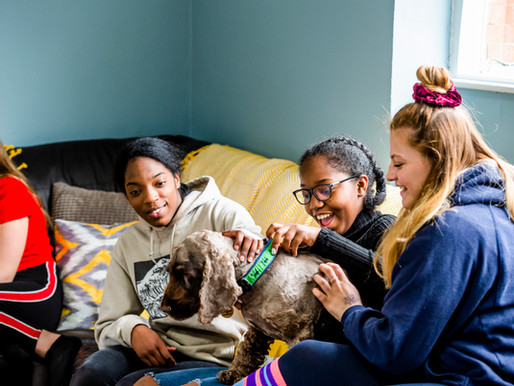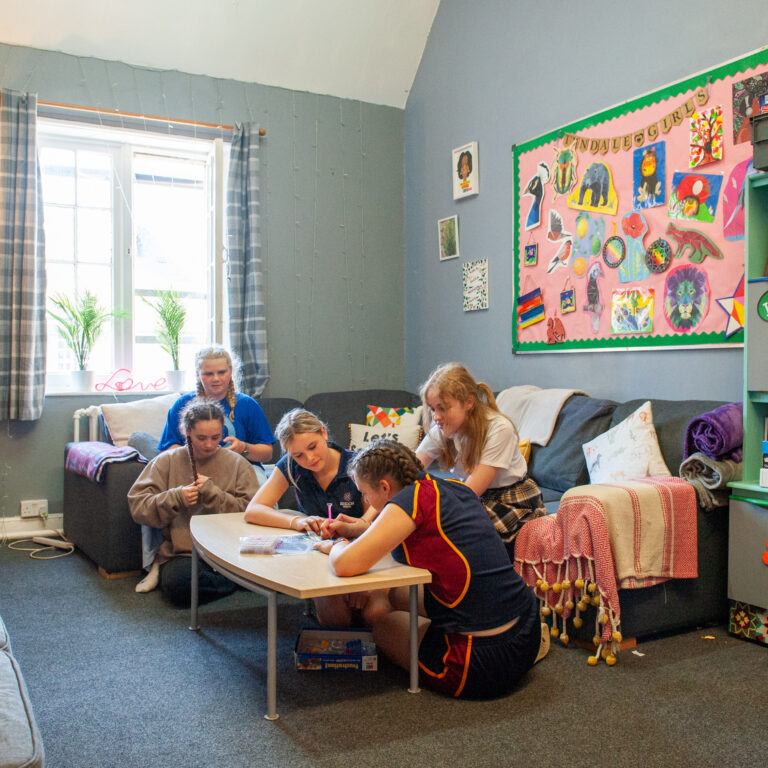As a parent, you want to help your child in any way you can. We spoke with the specialist Learning Support Team here at Bredon School, and found out their top tips for what a parent can do at home to support their dyslexic child’s education.
1. Self-Esteem is Key
It is important to talk to your child and help them to understand what dyslexia is. Emphasize that it does not mean that they are less intelligent and that they will get extra help and support. There are strong links between dyslexic children and low self-esteem. Focus on what your child is good at – praise them for effort and don’t always point out mistakes. Spot the talents in your child and encourage them in all manner of pursuits; there can be a huge pressure on young people to be academically successful. Make sure they know that there are lots of different types of success; if English Literature isn’t their thing, maybe they need to be reminded that they are a brilliant piano player, rugby player, puzzle solver… after all, a happy child is far more likely to achieve their full potential.
2. Focus on Your Child’s Interests
Getting your child excited about reading or writing can be far easier and more effective if the subject is something that they are interested in. For example, a past Bredon School pupil found reading difficult, however when asked to read aloud about the ‘History of Tottenham Hotspur Football Club’, he was much more enthusiastic and motivated! Find out what your child has a passion for and use this to help with activities at home. Taking a strong interest in your child’s talents will also help you to support and encourage them to pursue their goals and develop a stronger sense of self-belief.
3. Make Homework Fun
Let’s face it – most children don’t run through the front door after school, eager to sit down quietly to do their homework. This said, there are some sneaky ways in which you can bring reading and writing into everyday tasks to help your child practice. Next time you need to go shopping, ask them to help write out the shopping list; when you play a board game as a family, ask them to read the instructions out; as you are cooking dinner, get them to help by reading out instructions from the recipe to you…
4. Seek a School Which Can Offer the Right Support
Finding the right school for your child is not easy but it is definitely up there in terms of important decisions. Firstly, look into the support that your child needs; they may need smaller class sizes or extra support outside of lessons. Some schools will also offer dyslexia friendly teaching – at Bredon, everything we do is with dyslexia in mind, for example, pupils are never asked to copy down from the board and all pupils have a Google Chromebook which has helpful software already installed for them such as text-to-speech and dictation software. Visit the schools you are interested in and ask them about their support offered for dyslexic children. If they don’t have a dedicated SEN (Special Educational Needs) team, or see this as a priority, move on to the next!
5. The Sooner You Intervene the Better
The sooner you are able to place your child in the right educational environment, the better. If a dyslexic child starts their education in a school which is unable to offer them the extra support they may need, or simply teach in a way that makes it easier for them to understand, they may develop a negative relationship with being at school. They also may not understand why they find certain tasks more difficult than others in their class, which could contribute to a lack of confidence in their own abilities.
6. Get to Know Your Child’s Teachers
It is really important to develop and maintain an open dialogue with your child’s school. Their teachers will see a completely different side to your child whilst they are at school and it is important that you are able to work as a team; speak with the teaching staff openly about any concerns you may have. Your child’s teachers will be able to give insight into your child’s progress from a different perspective. They will know what is expected of your child for their age and how they are performing compared with other pupils in their year group. It could be that you are unnecessarily worried about something – teachers should always be welcoming to any questions you have and are there to help you.
7. Make Use of Good Tech
It’s 2020 and technology, such as voice recognition, is on the rise – lots of us use Siri, Google Voice Search or even have an Alexa in our homes (and even on our phones). Encourage your child to ask Alexa history facts, or ask questions to help with research for a homework project; this will cut out some of the time it takes to sit and stare at a computer screen, reading on a stark white background (notoriously unhelpful for dyslexics) from font that may be difficult for a dyslexic mind to de-code.
There are free text-to-speech apps out there and these can be enormously helpful for anyone who finds reading from a computer screen, tricky. The same can be said for speech-to-text (dictation software), which helps with getting ideas down in writing.
For inquisitive minds, audiobooks are a fantastic way to enjoy reading, without having to actually read from the page; this way, dyslexics can consume knowledge without barriers.
8. Visuals, Visuals, Visuals!
Chances are you already know that your child is a visual learner. Widgit – www.widgitonline.com – is a great tool that you can use to create symbol documents. We use Widget at Bredon to create visual timetables (such as the one below). If your child’s school doesn’t do this, you can create one at home for them. You could also create a bedtime routine with symbols and/or photos alongside it, or plan a family day out with a visual itinerary of the day. This will all help to associate words with images and aid your child’s reading skills.
Below: An example Bredon Pupil timetable created using Widgit

9. Dyslexia and Intelligence are Two Totally Separate Things
The most important thing you can do for your child is simply be there for them. Be there to encourage, support and inspire them. Reassure them about their talents and make sure they have a good understanding of dyslexia, what it is and how it affects their learning. Being dyslexic does not mean they have lower intelligence and there are a lot of positive traits that dyslexics have, such as being able to see the bigger picture, being more imaginative and being great problem solvers. Do your research and make sure that your child knows just how amazing they are!
10. Don’t Let Them Use it as an Excuse
This point sounds harsh – but it is true. There is no reason at all why someone with dyslexia can’t become extremely successful and achieve their goals and ambitions. Just take a look at some of the many famous dyslexics – Kiera Knightly, Holly Willoughby or Leonardo Da Vinci – did they let being dyslexic stop them from achieving great things? Absolutely not. We all have those days where everything seems to be more difficult than normal and we would rather just go back to bed – don’t let your child use dyslexia as a reason they ‘can’t’ do something and therefore give up. If we have learned one thing from our pupils at Bredon it is this – yes, there are going to be difficult days, but if you have the determination to push on and work hard, you can and will achieve.
For more information about dyslexia, visit: www.bdadyslexia.org.uk
To discuss your child’s learning requirements, or to book a visit to Bredon School, please contact our Admissions Team at admissions@bredonschool.co.uk or call 01684 293156.





